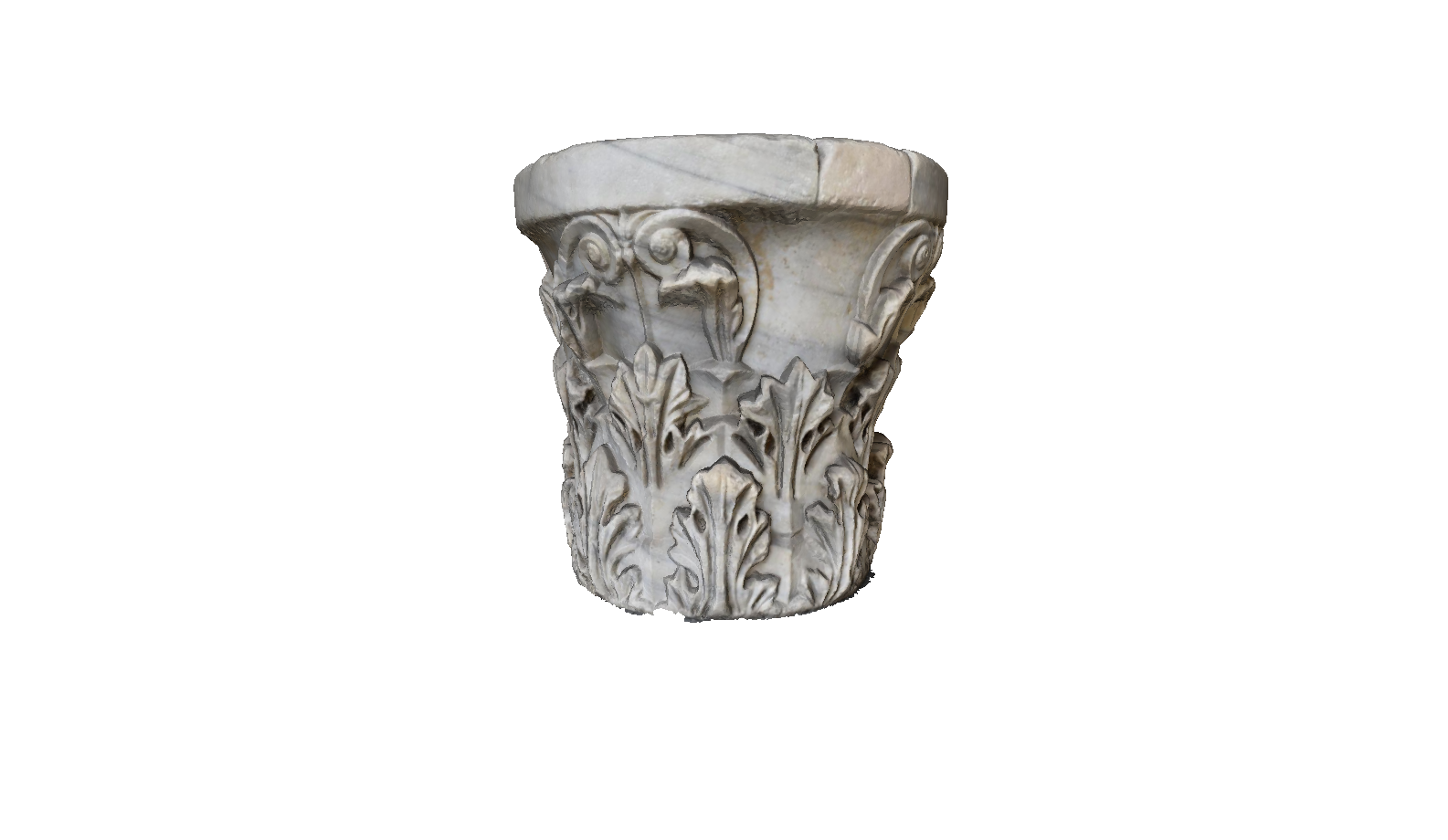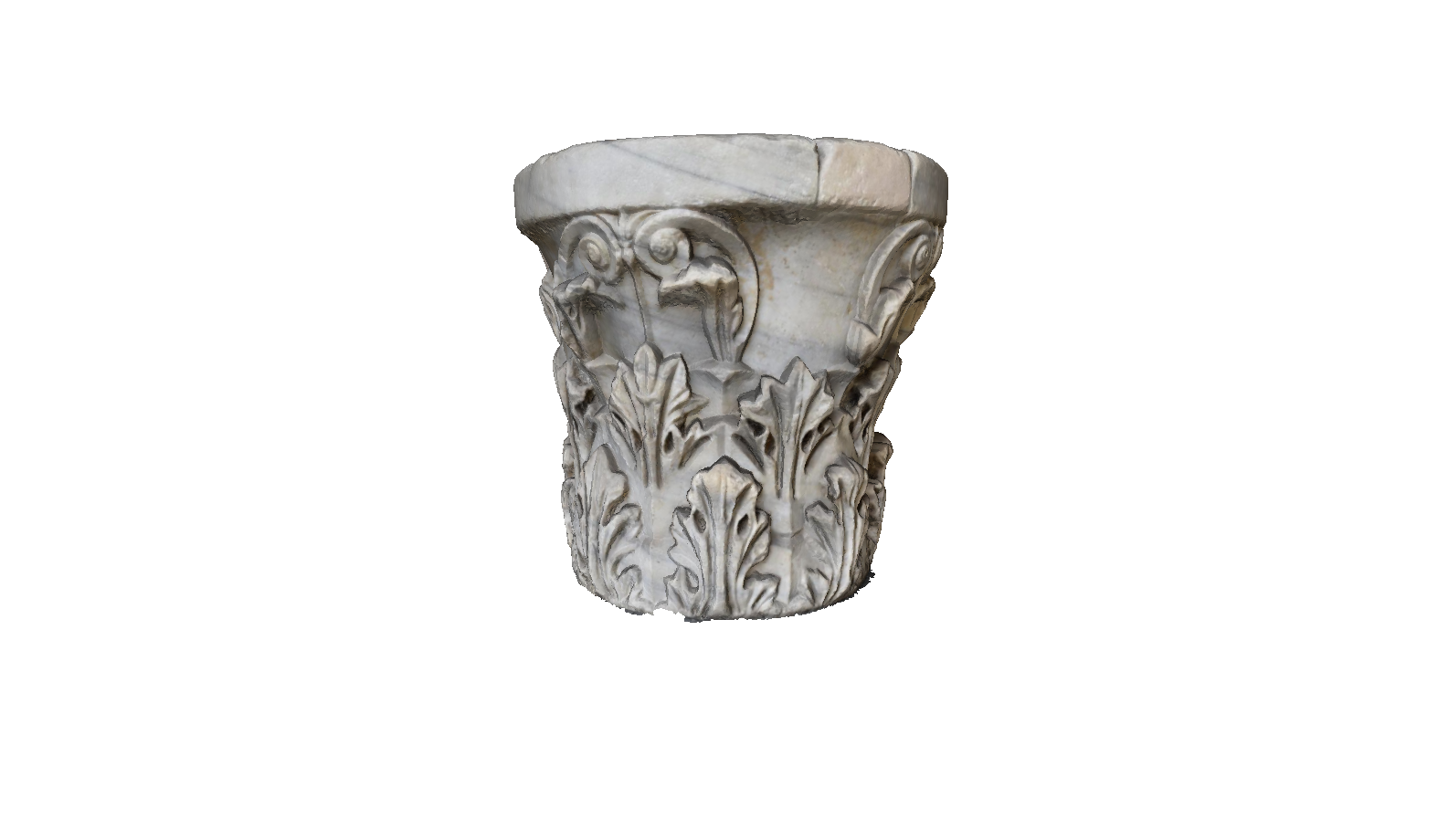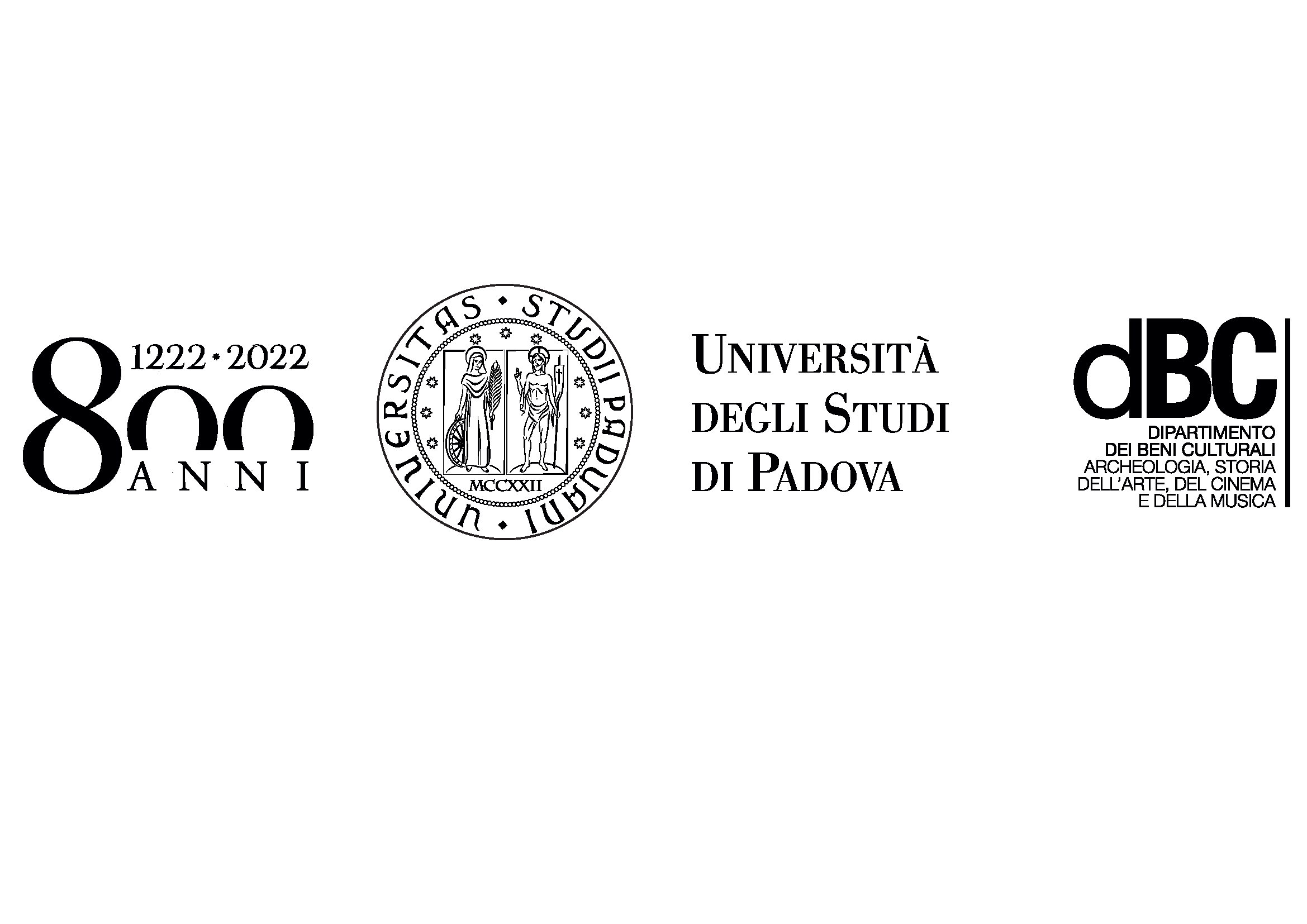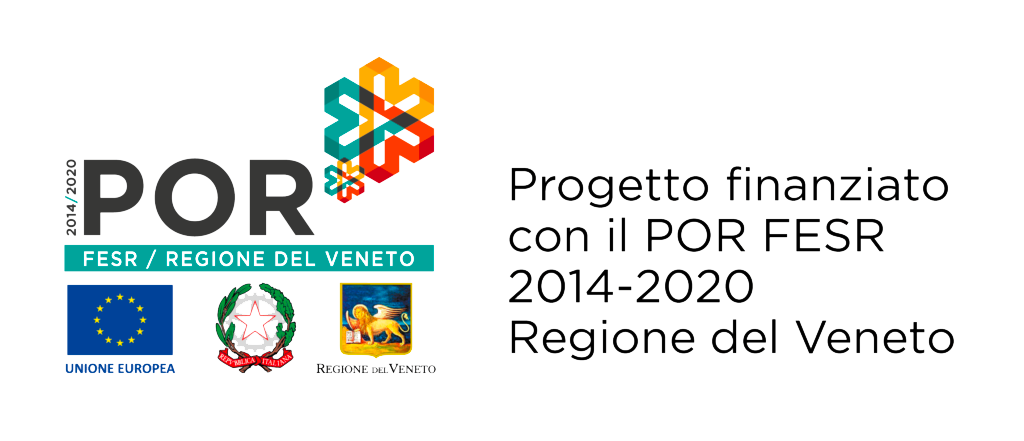 The capital was made with Proconnesian marble in the first decades of the 3rd century AD. It was found at an unknown time in the former farm of the Benedictines of Praglia located in Brusegana (Padua). The style is those of Corinthian Asian-style capital: a vegetable decoration, with acanthus crowns, run along the entire surface. They are depicted, however, in a peculiar form with very tall leaves with little expansion in width which leave gaps between each element. The rim of the capital is flared and projecting outward.
An interesting fact is that the capital, originally a solid block, was subsequently modified and carved out on the inside, transforming it into a puteal, that is, a small, richly decorated pit used as a water cistern.
The capital was made with Proconnesian marble in the first decades of the 3rd century AD. It was found at an unknown time in the former farm of the Benedictines of Praglia located in Brusegana (Padua). The style is those of Corinthian Asian-style capital: a vegetable decoration, with acanthus crowns, run along the entire surface. They are depicted, however, in a peculiar form with very tall leaves with little expansion in width which leave gaps between each element. The rim of the capital is flared and projecting outward.
An interesting fact is that the capital, originally a solid block, was subsequently modified and carved out on the inside, transforming it into a puteal, that is, a small, richly decorated pit used as a water cistern.
3D Models
Photogrammetry

High resolution Model with 249582 polygons. Scanned 2022-03-07.
Object Data
Physical data
Dimensions
(cm)
Height: 78.00<br>
Width: 77.00<br>
Archaeological data
Material
Marble
Class
Capitel
Provenance
Padua
Cronology
Roman
Dating
Early 3rd century AD
Production
technique
Sculpting and carving
Conservation
State
Entire

